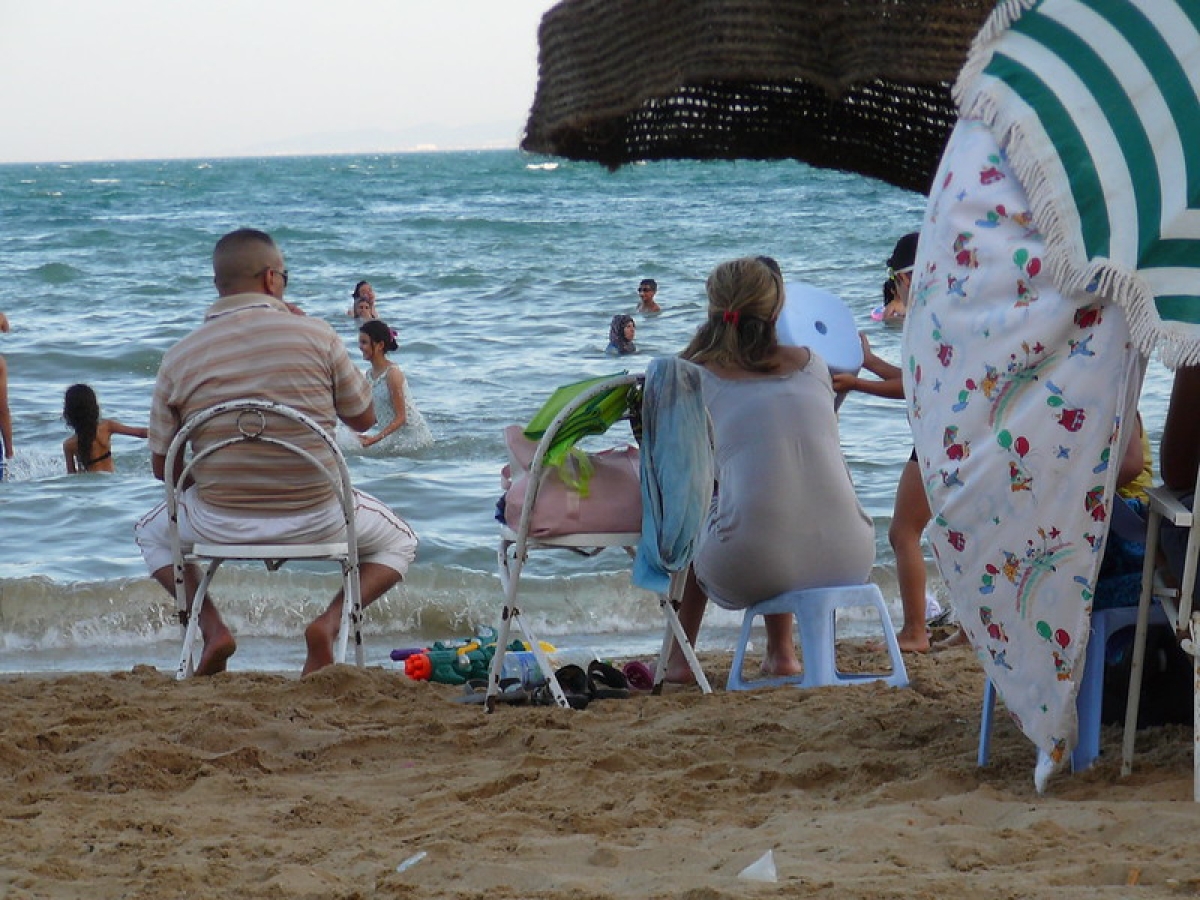Tunesien kämpft mit Wasserknappheit

Nur am Meer herrscht kein Wassermangel, Strandszene bei Tunis, Bild: Thomas v. der Osten-Sacken
Seit Jahren regnet es zu wenig in Nordafrika und Tunesien ist zunehmend vom daraus resultierenden Wassermangel betroffen.
Zunehmend autokratische Herrschaft, grassierende Korruption, Inflation und schwere wirtschaftliche Probleme: Die Lage in Tunesien ist alles andere als rosig, von den Hoffnungen der Jasminrevolution ist wenig geblieben.
Zudem kämpft das Land mit Dürre und chronischem Wassermangel, der ein immer gravierendes Ausmaß annimmt, wie dieser DW Beitrag eindringlich beschreibt:
The cost of drinking water in Tunisia has increased by up to 16 per cent as the country battles with five years of severe drought.
The country’s official gazette outlined the increase which will have the biggest impact on tourist facilities and those who use the most water.
Prices will remain unchanged for small household consumers.
Those whose consumption exceeds 40 cubic metres will see an increase of 12 per cent and those using between 70 and 100 cubic metres will pay 13.7 per cent more.
The highest increase of 16 per cent will be for tourist facilities and those using more than 150 cubic metres of water.
The decision to raise prices came as Tunisia experienced its first significant rainfall in a long time. Government officials said this week that the country’s dams had reached 35 per cent of their capacity at the end of February. (...)
Last March, Tunisia brought in a quota system for drinking water, hoping that this would reduce excessive consumption. State water distribution company Sonede has also been cutting off supplies at night since last summer.
Using drinking water in agriculture has been banned. Farmers previously made up around three-quarters of the country’s water consumption but last year saw a decline in agricultural output as grain production fell by 60 per cent.
There is also a ban on using drinking water to wash cars, clean streets or public places and water green areas. Anyone who breaks these restrictions faces penalties that range from fines to imprisonment for up to six months.